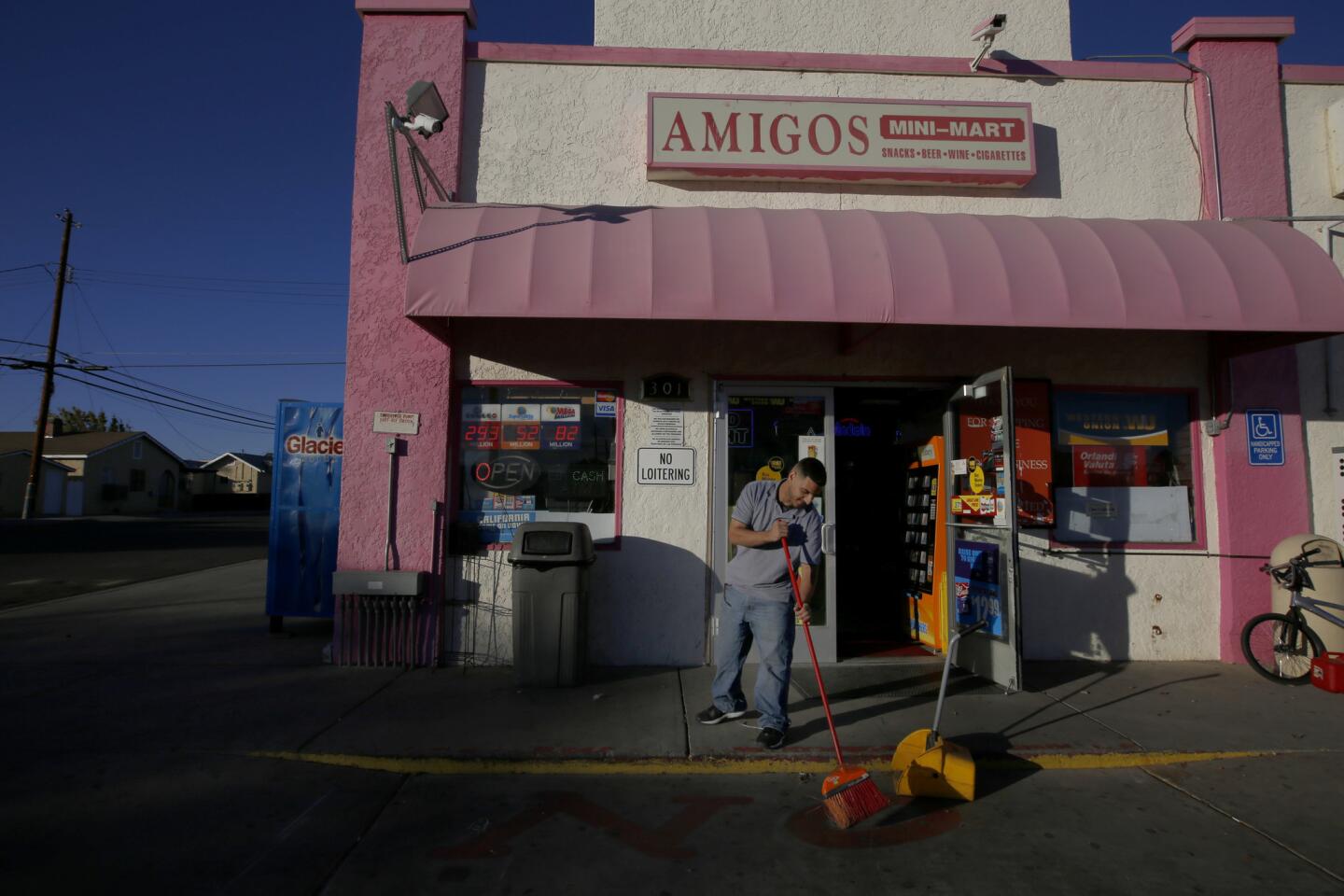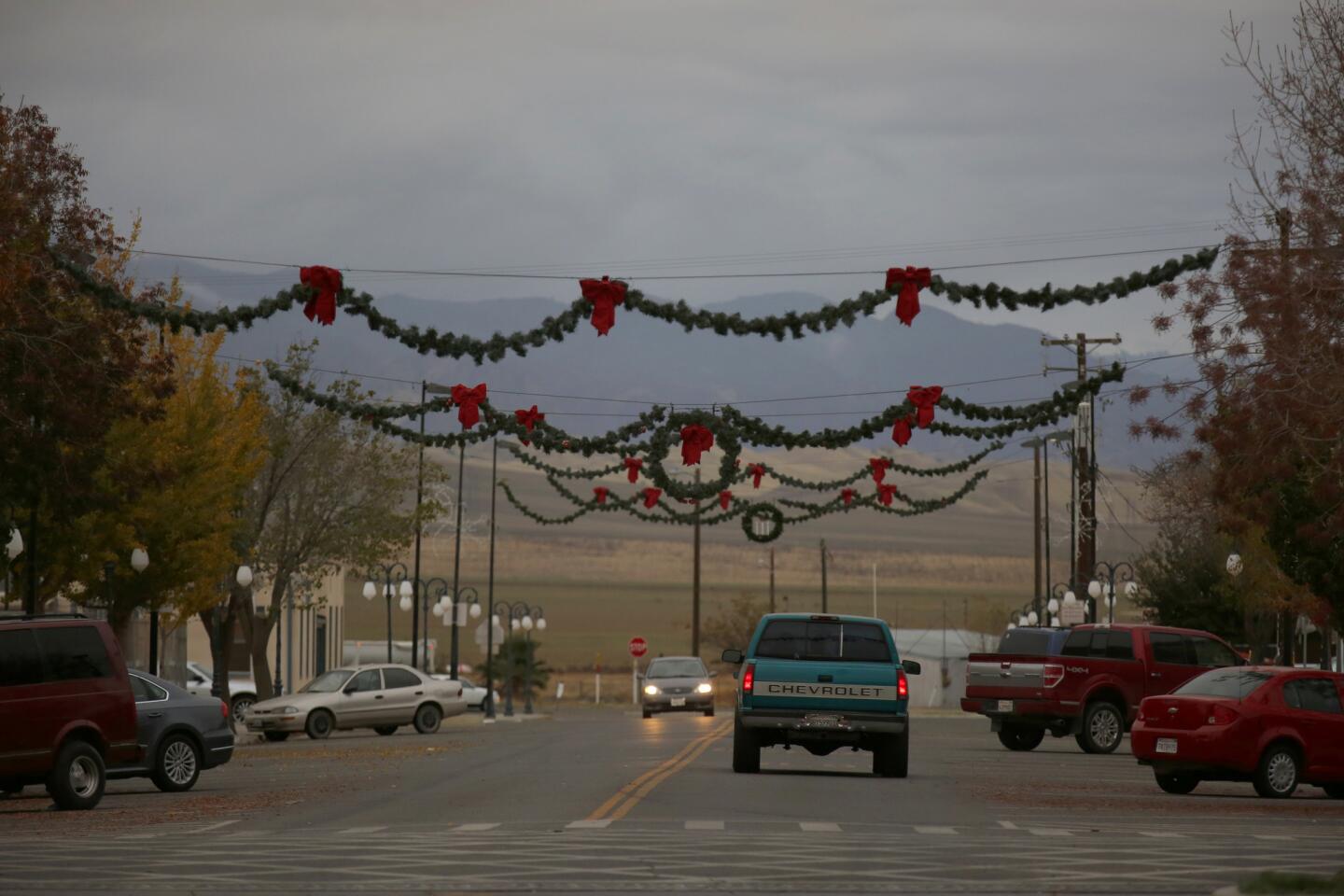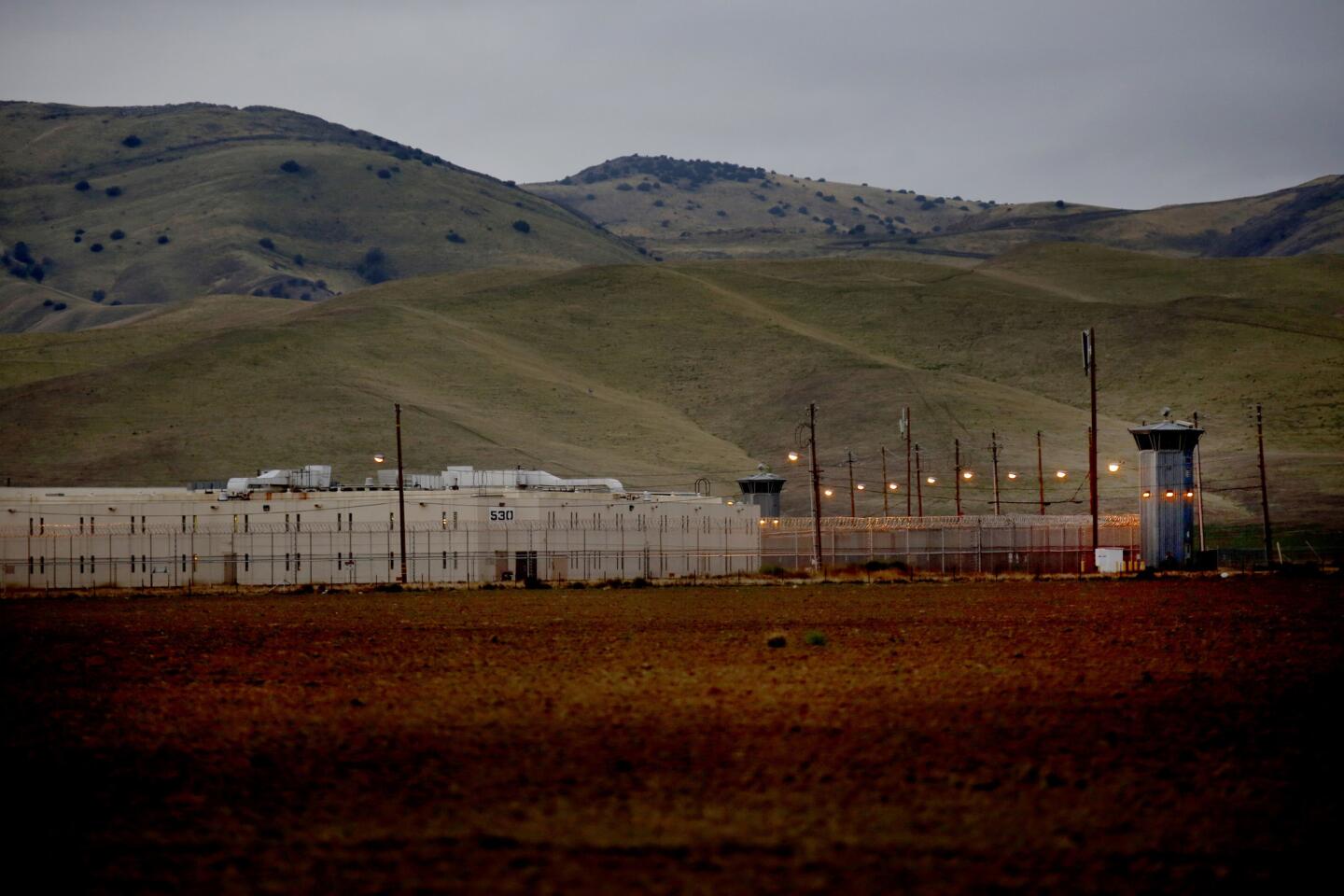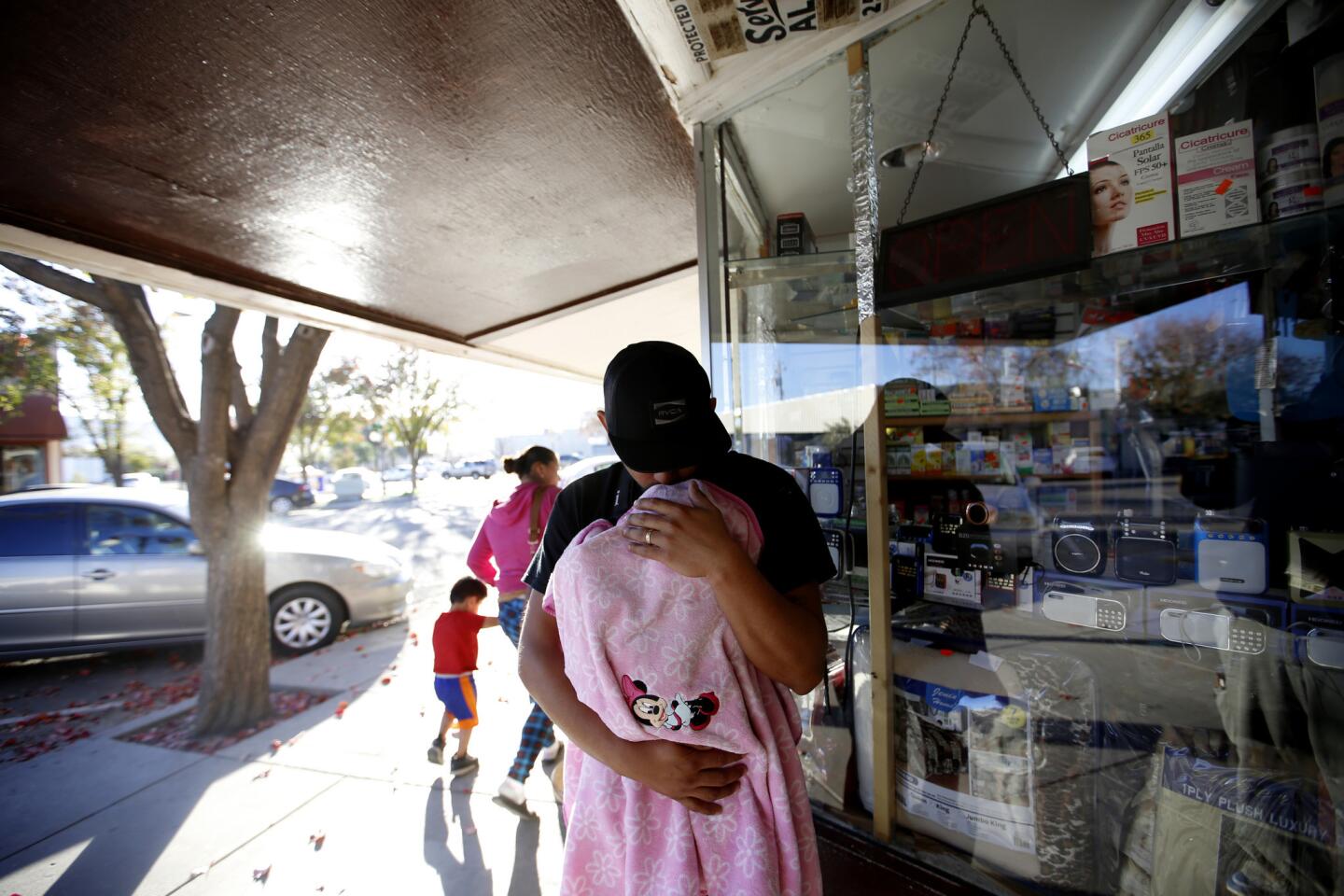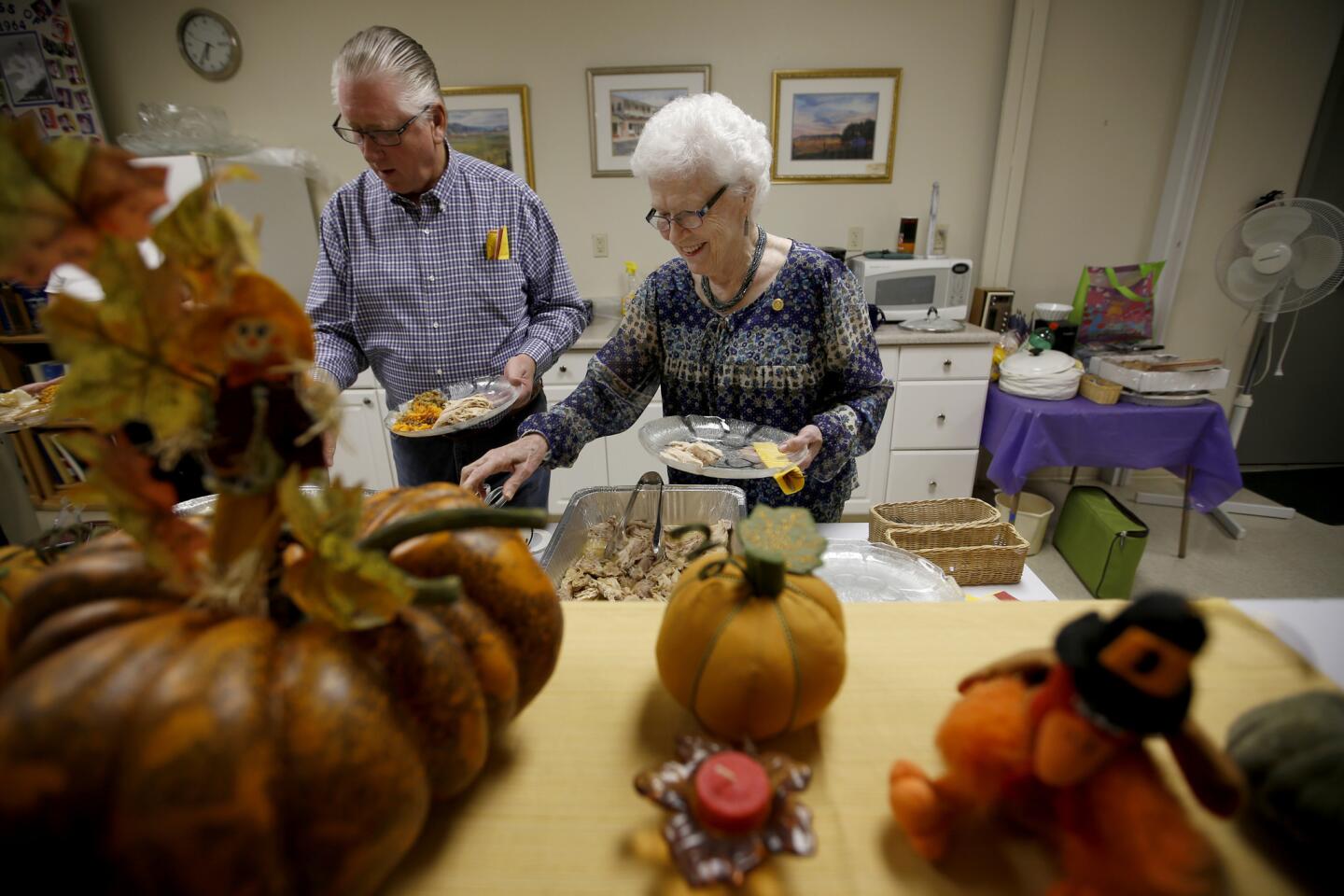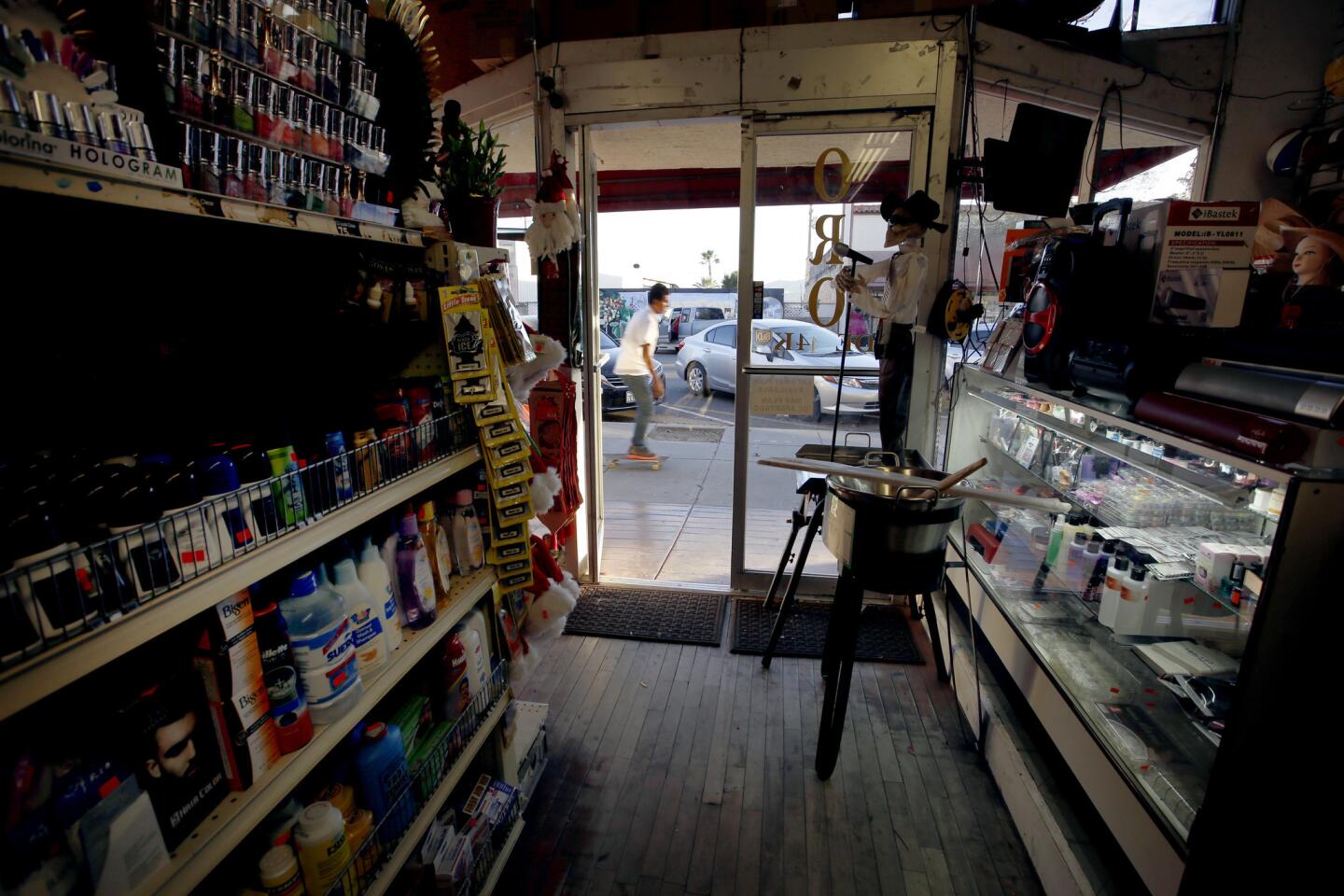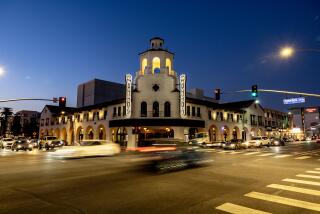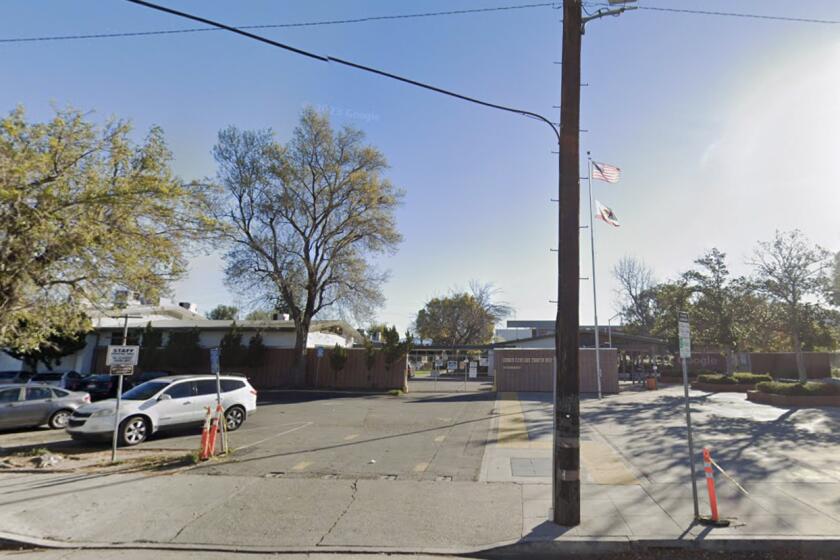How pistachios and a prison are keeping a little California town afloat
It’s long been common practice in California-speak to identify every new big thing as the next Gold Rush. And this little town on the western flank of the San Joaquin Valley, midway between Los Angeles and San Francisco, has been at the center of several of the new golds.
The black gold of oil cannonballed Avenal into existence in 1928, first as a tent city, then as a prosperous Standard Oil company town, after a wildcatter unearthed a gusher in the sere Kettleman Hills.
For the record:
8:52 p.m. April 23, 2024A previous version of this article misspelled Avenal Mayor Harlin Casida’s first name as Harlan.
The liquid gold of imported water, carried from the north by the California Aqueduct, gave it a second, if tenuous, life as a migrant farm laborer town.
In the 1980s, poor and reeling, Avenal became the first of several valley towns to petition successfully for a state prison — gray gold, as it was called back then.
It’s an amazing little town, and yes it has changed.
— Linda Hamner Payne, Avenal Historical Society president
Today Avenal is trying to rally around yet another next big thing, this one related to San Joaquin Valley agriculture and the globalizing economy: the explosion of acreage planted in hard nuts, almonds, walnuts and pistachios, much of it for export overseas, especially China.
Road signs leading into Avenal now proclaim it to be the “Pistachio Capital of the World,” but always between quotation marks. Nobody knows for sure that Avenal is the actual pistachio capital of the world, but there are many groves outside town and a big packing operation a half-hour up the highway.
“We are the self-proclaimed pistachio capital of the world,” said Mayor Harlin Casida, who pushed for grabbing the pistachio title. “I don’t know what it takes to qualify for that, but there’s a ton of pistachios around us. And nobody has complained so far.”
We are the self-proclaimed pistachio capital of the world. I don’t know what it takes to qualify for that, but there’s a ton of pistachios around us.
— Avenal Mayor Harlin Casida
It was a Saturday morning, and Casida was on the town’s main street, preparing a stage for a Miss Teen Avenal contest and a folkloric dancing exhibition, all part of the town’s third annual Pistachio Festival.
When Casida and others talk about the town’s history, there tends to be a perils-of-Pauline tint to the narrative.
After the oil started to dry up in the late 1950s, the once-prosperous boom town saw its oil workers transferred to other fields, and towns, to the south.
Then, in the early 1970s, the stretches of the California Aqueduct and Interstate 5 that pass close to Avenal were completed.
“That gave us something to build on again,” said the 75-year-old Casida, an Avenal native and retired high school teacher and coach who has been involved in civic service in some capacity for more than 30 years.
But tourists were hard to come by, and it was difficult to build a municipal economy on the earnings of migrant farm workers. By the 1980s, Avenal found itself, in the phrase of a Washington Post reporter, “a dusty, two-bit slice of nowhere traveling at warp speed toward oblivion.”
Edna Ivans, an 88-year-old resident who with her husband, Nick, owned and operated the town’s pharmacy, recalled the next reversal of fortune: “Nick saw this little teeny article in the L.A. Times, about three sentences long.”
It reported that the state was sitting on a half billion dollar budget for building new prisons, but was having trouble finding any town willing to take one.
“Nick said,” she recalled, “‘This looks like something we ought to do.’”
Nick Ivans, now deceased, soon was getting national media attention as the face of what was then a novel pursuit, his widow said. “He was the crazy pharmacist who wants a prison in town.”
At one point, newly elected Gov. George Deukmejian asked a visiting Kings County supervisor if he represented “that pharmacist who wants a prison?”
The supervisor responded that he did, and the governor said: “Well, tell him to come and get it.”
With the prison, completed in 1987, came an instantly expanded population, as prisoners are counted as residents. A larger population meant a boost in per capita-based tax revenues from the state. And also some steady work for a number of Avenal residents, though most of the prison employees would choose to live elsewhere.
New redevelopment money was raised, allowing Avenal to lay down 52 miles of curbs and sidewalks. A city program placed decorative facades on some of its downtown storefronts. Remaining dirt roads were paved.
And eventually its historic theater, a remnant of the boomtown days, was remodeled, with help from Beverly Hills entrepreneurs Stewart and Lynda Resnick, who have built a multibillion-dollar empire on such ventures as almond groves, Fiji bottled water and POM Wonderful.
Their Wonderful Pistachio “processing campus,” as a company website describes it, is located in the nearby town of Lost Hills and employs many Avenal residents. The Resnicks, who have faced criticism for some of their agriculture practices, also built a new preschool in town and established a recreation center in an old schoolhouse.
“Stew and Lynda,” Mayor Casida calls them.
::
Oblivion averted, Avenal today is looking to attract other businesses that can provide jobs needed to keep its residents, especially the younger ones, from abandoning the town.
More than 80% of its 12,000 or so residents — the prisoners add about 3,500 to the population count — are now Latino. Spanish is the predominant language in the little shops on King Street in the business district.
It’s different now, say some of the residents who still remember the oil boomtown days. But it also isn’t.
“It’s an amazing little town, and yes it has changed,” said Avenal Historical Society President Linda Hamner Payne, whose father was a derrick crew chief. “But it also has remained the same as far as helping out each other, and watching out for each other. We’ve got a lot of hardworking people in this town, and a lot of good people.”
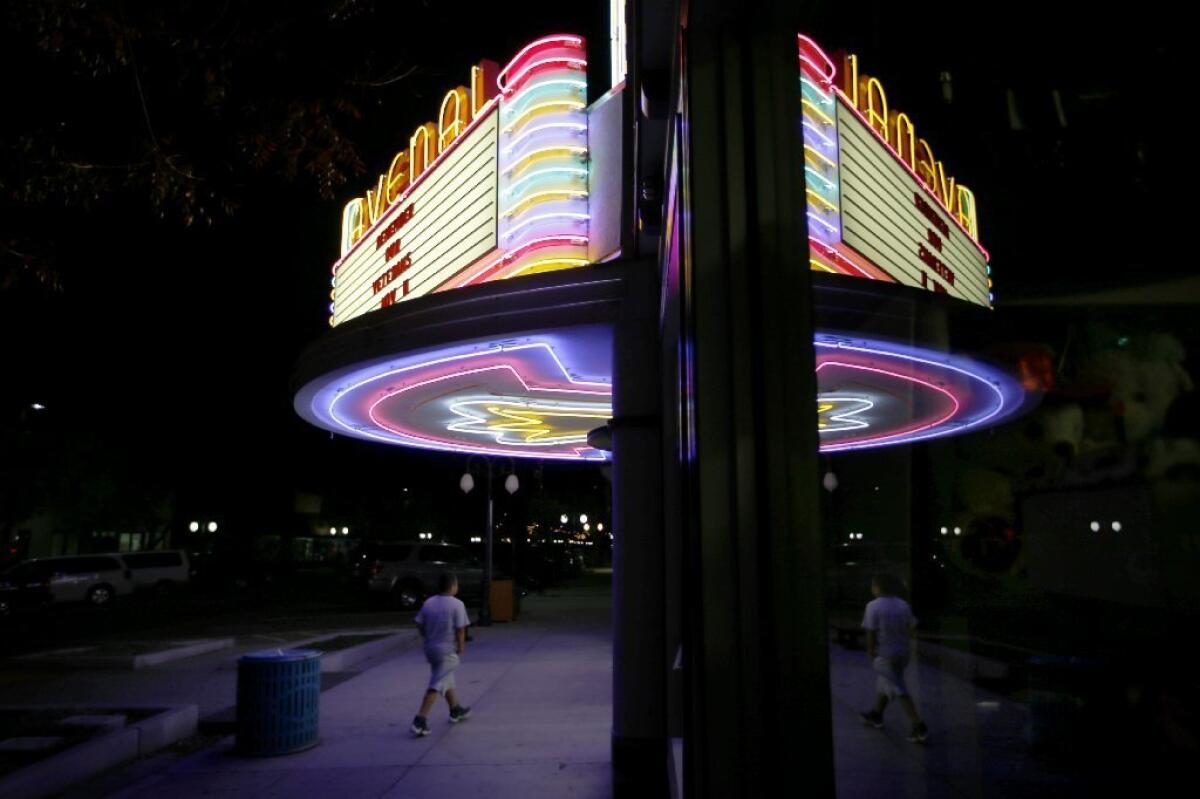
On this Saturday, at a house located just a few doors down from a stretch of a main road named Laneva — which is Avenal spelled backward; don’t ask, nobody remembers who, when, or why — preparations were underway for a yard party.
A young woman who was hanging pink and blue balloons over three patio tables came over to the wrought iron fence and answered a few questions.
“We are having a baby shower for my sister-in-law,” Brenda Vargas explained.
Vargas said her father, who was sweeping in the yard, still works in the fields. Her mother is a packer for Wonderful Pistachios. Vargas herself is in her second year at West Hills Community College, up Highway 33 in Coalinga. She has lived in Avenal for all of her 20 years.
She was wearing a T-shirt that said “Live the Dream.”
And what is her dream?
“I want to finish at West Hills and go to four-year college, to Cal State Bakersfield,” she said. “I want to study child development and become a teacher, maybe at high school, but probably preschool.”
Here in Avenal?
“Yes, in Avenal. It’s a pretty nice little town.”
She smiled, this face of Avenal’s future, and returned to her preparations to celebrate the pending arrival of a member of the next generation to populate this little town in the middle of nowhere, and the middle of everything.
Twitter: @peterhking
ALSO
Why your doctor might start grocery shopping with you
More than two decades after a young mother’s murder, finally an answer
‘Here, I am above average’: Chinese ‘parachute kids’ are coming to the U.S. at younger ages
More to Read
Start your day right
Sign up for Essential California for news, features and recommendations from the L.A. Times and beyond in your inbox six days a week.
You may occasionally receive promotional content from the Los Angeles Times.


